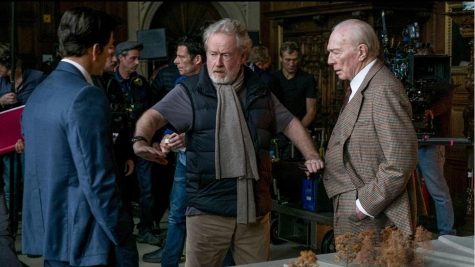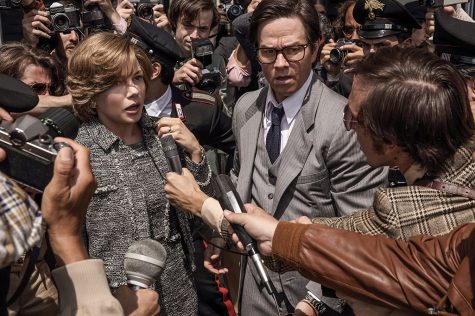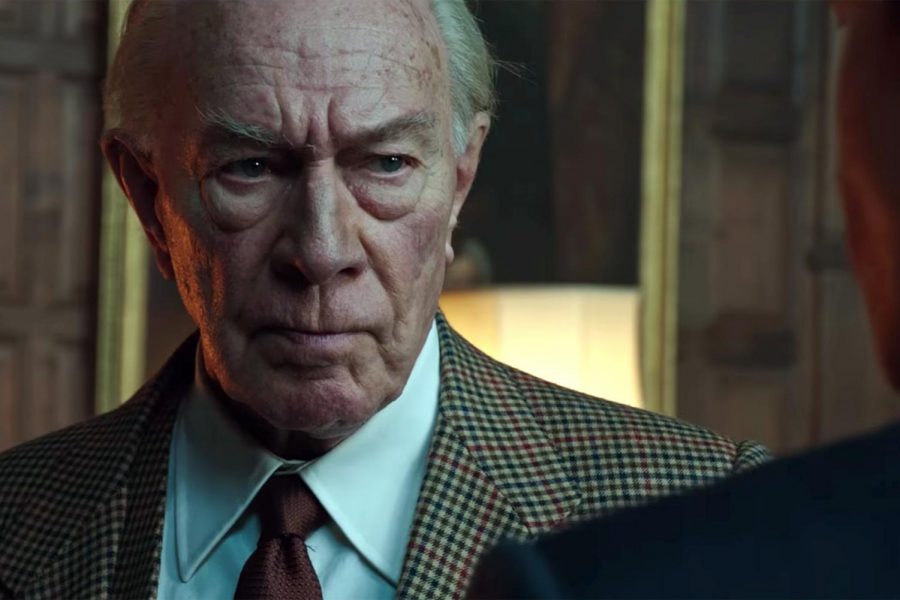“All the Money in the World” delivers standard thriller fare
Kidnapping drama “All the Money in the World” became one of the most talked about films this season when drastic re-shoots were announced two months before release. WSS reviews the underwhelming finished product.
What do you do when your film is rendered unwatchable at the last minute? Everything is complete, save the select few finishing touches one adds in post-production. But, at the very last minute, you get the news that a key player in the film has now been rightfully shunned. This very problem plagued Ridley Scott, the director of the recent biopic “All the Money in the World,” when one of the stars of the film, Kevin Spacey, was charged with multiple accounts of sexual harassment.
Scott could have easily allowed the film to slip away into obscurity, or even never see release, as was the situation with Louis C.K.’s film “I Love You, Daddy.” But he wouldn’t let that happen, and so, with just a month left until release, he powered on and re-shot many of the key scenes of the film, replacing Spacey with 88-year-old actor Christopher Plummer. Finishing the needed re-shoots in just eight days, the film met its intended December deadline.
This story alone is sufficient reason to see “All the Money at the World,” if for no other reason than to see firsthand the exquisite last-minute job done by the crew to rework the film for release. What has been said about it is true — the seams don’t show — and Plummer is fantastic as usual. Scandals aside, it helps give the film authenticity to have a person closer to Getty’s age in the role. This is sensitive material, and if Kevin Spacey had been ambling around on screen with basically a rubber mask on (as the original trailers conveyed), the film would have been laughable at best. Plummer is not only the correct age, but a first rate actor, and does wonders with the role. He brings a more human aspect to the role. He’s cold, but you can tell that, however deeply buried it is, there is some humanity within him.

Sadly, the rest of the film is mostly unimpressive. This has nothing to do with the hasty re-shoots. These are issues that run deeper. The film’s screenplay, written by David Scarpa, seems to favor cheap and ineffective devices to drive suspense rather than what actually happened in real life. There is a clear boundary between making slight edits for “dramatic purposes” and making stark diversions from what actually happened for a cheap thrill.
The most prominent manifestation of this comes in the form of Mark Wahlberg. His character, real or not, has no place in the story. He feels so intrusive, you can just sense Scarpa thinking that an action hero or love interest was needed. But what makes this more frustrating is that he is never fully pushed either direction and remains in the film for its duration just being there. When Wahlberg waltzes in near the end of act one, the film makes the transformation from intriguing family drama to run-of-the-mill action movie about kidnapping.
The Getty story is fascinating. Reading about it before I went into the film, I could see why it caught Scott’s eye. It’s rich with betrayal, festering wounds, neglect, drug abuse and, if done right, it could have been the subject of a fascinating study of how wealth can corrupt and destroy a family. It would make a great movie, which is why it’s especially a shame that Scott took the key players and plopped them into a standard action-thriller.

Michelle Williams proves that she can ramp up the quality of just about anything she’s in with her presence. She plays the mother of the kidnapped boy, Paul Getty III. As Gail Getty, she conveys the pain of losing a child and frustration at being the only one in the whole thing who sees Paul Sr.’s foolishness. There is a great dynamic here, which could have been made even better if Wahlberg had been replaced with the kidnapped Paul’s father, Paul Getty II. This could have added a more personal angle to the film, making it more of a tense family drama than a thriller. Reading up on the actual events, he in fact had a lot to do with the negotiations in the case and was himself riddled with drug problems. The film lightly glosses over him and his issues, instead remaining in safer territory with the Mark Wahlberg hero.
Also added are a quick chase scene to ramp up the action near the end, and a hasty character death which happened years after the events conveyed in the film. After all of this, everything is wrapped up in a neat Hollywood ending, promising that the characters will probably be all right once everything passes.
Scott’s direction is elegant and I have nothing but admiration for him and his work ethic, going back to fix the movie when all seemed lost. There are many interesting pieces to the film, Christopher Plummer, Michelle Williams and even Charlie Plummer (no relation) deliver performances worthy of a better film. In the end, the captivating stories behind “All the Money in the World,” both of its production and the truths of the Getty case, remain more interesting than the film itself. It would do you good to stick to reading about these topics rather than spending two hours on this uninspired production.
Your donation will support the student journalists of West High School. Your contribution will allow us to purchase Scholarship Yearbooks, newsroom equipment and cover our annual website hosting costs.

Harry Westergaard is a senior at West High and this is his third year on staff. He does a little bit of everything on staff, working primarily as the Arts...




